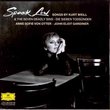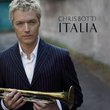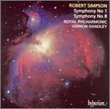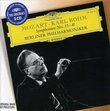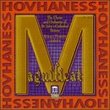| All Artists: Johannes Brahms, Franz [Vienna] Schubert, Ludwig van Beethoven, Arturo Benedetti Michelangeli Title: Brahms, Schubert, Beethoven / Arturo Benedetti Michelangeli Members Wishing: 0 Total Copies: 0 Label: Dg Imports Release Date: 1/11/2000 Album Type: Import Genre: Classical Styles: Chamber Music, Forms & Genres, Ballads, Sonatas, Historical Periods, Classical (c.1770-1830), Romantic (c.1820-1910) Number of Discs: 1 SwapaCD Credits: 1 UPC: 028945776224 |
Search - Johannes Brahms, Franz [Vienna] Schubert, Ludwig van Beethoven :: Brahms, Schubert, Beethoven / Arturo Benedetti Michelangeli
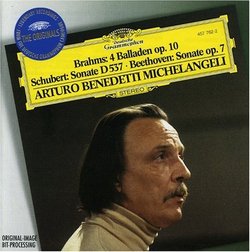 | Johannes Brahms, Franz [Vienna] Schubert, Ludwig van Beethoven Brahms, Schubert, Beethoven / Arturo Benedetti Michelangeli Genre: Classical
|
Larger Image |
CD DetailsSimilarly Requested CDs
|
CD ReviewsMAINLY A COLLECTORS' ITEM DAVID BRYSON | Glossop Derbyshire England | 03/20/2002 (5 out of 5 stars) "With Michelangeli you can hardly ever talk about a performance purely in terms of interpretation of the composer. Sooner or later you have to come back to that unique sound-production, and with the contents of this disc it's 'sooner'. For music-lovers not yet familiar with him I recommend hearing someone else's copy before buying. His home-ground was Chopin, Liszt, Debussy and Ravel rather than German and Austrian masters. This is the only Schubert I have heard by him, and apart from his stupefying Paganini variations this is the only Brahms. His known Beethoven readings (known to me anyway) are 5 sonatas and 3 concertos, and the rest of his public Teutonic repertory was a certain amount of Schumann and some Bach arrangements, plus some Mozart and Haydn concertos. I should start with the Brahms, where his approach is nearest to mainstream, and see how you like that. There is far less consensus about how Brahms should be played than about Beethoven or Schubert. These readings are big, deadly serious and powerful without being specially fiery. The really striking thing about them is the tremendous full rich tone. Experienced listeners presented with this but not told who was playing would guess right before very long. This is Brahms-Michelangeli but 'normal' Brahms for all that. The rest is Beethoven-MICHELANGELI and Schubert-MICHELANGELI. I'm struggling a bit for the right vocabulary to describe the very special effect. It is 'classical' and in tune with the modern tradition of playing the German classics as reformed and established by Schnabel and Kempff and it is Olympian in the last degree. There is nothing cold about it but there is something aloof. No use looking in this Beethoven for the tension that we tend to take for granted, nor in this Schubert for the familiar vulnerable tone. Whatever you think of these as interpretations, I shall be suprised if you are not at least impressed. I have to come back to it -- that tone is utterly unique and about as unlike the familiar wiry tone of the 'average' super-virtuoso as can be imagined. One touch that made me smile was the start of the Beethoven. There is some scholarly dispute as to whether B wrote 'forte' or 'piano'. Michelangeli seems to play mezzo-forte, which I suppose is one solution. Those who know him from other contexts will not be surprised by him here. I came to him late and via Chopin and am hopelessly hooked. In the last resort there are plenty of great interpretations of these masters, but there is only, will ever be only, one Michelangeli." Extraordinary Playing Christopher Smith | Atlanta, Georgia | 09/07/2000 (5 out of 5 stars) "This is an exciting and exceedingly pleasing recording. I had heard all kinds of things about Michelangeli's stunning technique, and it's all true. However, this recording is not just a platform for technique alone. Michelangeli infuses the Brahms Ballades with a sense of terrible foreboding in the first and fourth, but lets the gorgeous lyricism of the second and third shine through without restraint. These Ballades are major league Brahms, and there's no one better than Michelangeli to illustrate their variety and profundity. As for the Schubert, this very early sonata has the kind of joyous verve of his early symphonies, and there is an extra treat in that its slow movement is an early exploration of what would become the finale of his D.959 piano sonata. Not many people record Beethoven's(vastly underrated)op. 7 sonata, unless they're obliged to in the course of recording all 32. A shame. After the Hammerklavier, it's the longest Beethoven wrote, and Michelangeli has a very firm grasp of its overall structure. He also has no problem bringing forth its singing lines and epic qualities either. Listening to this recording is like going to a glorious and memorable recital. All three pieces that Michelangeli chose to play here exist just below the radar of popular classical recording choices, but they're all well worth knowing, and I can't imagine them being played better. DG is incredibly generous here, with over 80 minutes of extraordinarily varied music played in an absolutely flawless manner. This disc also serves as perhaps the best introduction to one of THE master pianists of the 20th century, so go for it!" Michelangeli and Brahms Baker Sefton Peeples | Santa Cruz, CA United States | 02/03/2004 (5 out of 5 stars) "This CD contains 80 minutes of music, but I mainly listen to the first four tracks, the Brahms Op. 10 Ballades.
I had heard these pieces before I bought this recording, but Michelangeli's performance left a great impression upon me. Without consulting a score, I could feel the form of these pieces, and I find that very important to making a piece intelligible. To say M's playing is impeccable is an understatement. Instead, he has this vision, or, more of a sound ideal that he makes (or tries to) every piece conform to, hence why another reviewer says this is Brahms-MICHELANGELI, and same for the other composers. After hearing this, I'm puzzled, cause I think Michelangeli would have been stunning in the two concertos, the rhapsodies, and other piano works of Brahms, but why did he not record them? Did he not play them? We shall never know. The Schubert is less successful since his treatment of it is not too sympathetic and tries to sound monumental when the piece isn't that way at all. Never have I heard such dynamic and rhythmic control, but I don't like the performance as a whole. The Beethoven, is also puzzling. Obviously, this is some of the best Beethoven playing I've heard (comparable sound quality, i.e. "monumental" to Klemperer's recordings of the symphonies with the Philharmonia). Tempos are stately, but everything is well defined and after hearing this, it makes me think of it as an absolutely ingenious piece. Only somebody who can articulate every note and attempt to make it mean something, like M, can pull this off. Sure, it's not terribly exciting, and the slow movement hangs fire, but I love it. The Brahms Ballades are essential, avoid the Schubert, and listen to the Beethoven, for Michelangeli plays it incredibly well and, like the Brahms, clearly articulates the structure." |

 Track Listings (11) - Disc #1
Track Listings (11) - Disc #1